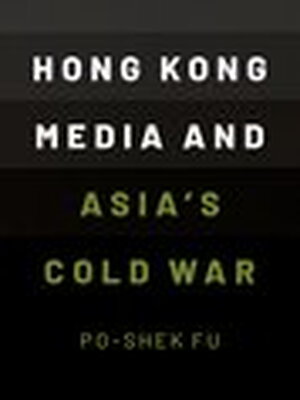
Po-Shek Fu
Hong Kong was a key battlefield in Asia's cultural cold war. After 1948-1949, an influx of filmmakers, writers, and intellectuals from mainland China transformed British Hong Kong into a hub for mass entertainment and popular publications. While there was no organized movement for independence, largely because of its location directly next to Mao's China, Hong Kong was central in the cultural contest between Communist China, Nationalist Taiwan, and the United States.
Hong Kong Media and Asia's Cold War discusses how China, Taiwan, and the U.S. fought to mobilize Hong Kong cinema and print media to sway ethnic Chinese in Southeast Asia and across the world. Central to this propaganda and psychological warfare was the emigre media industry. This period was the “golden age” of Mandarin cinema and popular culture. Throughout the 1967 Riots and the 1970s, the emergence of a new, local-born generation challenged and reshaped the Cold War networks of émigré cultural production, contributing to the gradual decline of Hong Kong's cultural Cold War. Through untapped archival materials, contemporary sources, and numerous interviews with filmmakers, magazine editors, and student activists, Po-Shek Fu explores how global conflicts were localized and intertwined with myriad local historical experiences and cultural formation.